First published in 2010 by
Berghahn Books
www.berghahnbooks.com
2010, 2012 Peo Hansen and Sandy Brian Hager
First paperback edition published in 2012.
All rights reserved. Except for the quotation of short passages
for the purposes of criticism and review, no part of this book
may be reproduced in any form or by any means, electronic or
mechanical, including photocopying, recording, or any information
storage and retrieval system now known or to be invented,
without written permission of the publisher.
Library of Congress Cataloging-in-Publication Data
Hansen, Peo.
> / Peo Hansen and Sandy Brian Hager.
p. cm.
Includes bibliographical references and index.
ISBN 978-1-84545-733-4 (hbk.) ISNB 978-0-85745-621-2 (pbk.) ISNB 978-1-84545-991-8 (ebk.)
1. CitizenshipEuropean Union countries. 2. Civil rightsEurope. 3. European Union countriesEmigration and immigration. 4. European Union. I. Hager, Sandy Brian. II. Title.
JN40.H36 2010
323.6094dc22
2010013458
British Library Cataloguing in Publication Data
A catalogue record for this book is available from the British Library
ISBN 978-1-84545-733-4 hardback
ISNB 978-0-85745-621-2 paperback
ISNB 978-1-84545-991-8 ebook

Preface
This book traces the politics of European citizenship as it has unfolded since the beginning of the European integration project in the 1950s to the present day. Our main focus, though, lies with the more contemporary developments, stretching from the mid-1980sor the commencement of the EUs Single Market projectuntil the present. The idea of writing this book took shape in the aftermath of the French and Dutch No votes in the referenda on the EUs Constitutional Treaty in 2005. Ironically enough, as we were about to finish writing the book, in the summer of 2009, we found ourselves in the still uncertain aftermath of yet another shocking EU referendum: the Irish No to the Lisbon Treaty. (At the time of going to press, the Lisbon treaty had been ratified, in November 2009, via a second Irish referendum, held in October 2009.)
Given the serious challenges that the French and Dutch referenda were to pose to the direction of the European project, we felt an urge to craft an analysis that could provide both a broad and thorough understanding of the social purpose and historical trajectory of EU citizenship. We thus aimed to move beyond the existing approaches to the study of EU citizenship, which are largely dominated by rather narrow foci on normative prescriptions and visions, on the one side, and legal-institutional descriptions and policy recommendations, on the other. Through our broad focus on the interrelated matters of political economy, social rights, and migrationall of which were central elements in the heated referenda debateswe instead wanted to highlight the enormous stakes, deep-seated contradictions, and widening power asymmetries that shape the content, purpose, and struggle of EU citizenship. In essence, our intention was to speak to the urgency involved in the current politics of European citizenship: to a European Union plagued by increasing social exclusion and labour insecurity, rampant exploitation of rightless undocumented migrant workers, growing anti-immigration and anti-Muslim sentiments, rising support for the racist extreme right, and blatant disregard for refugee and human rights, as seen in the almost daily tragedies resulting from the EUs militarized fight against illegal immigration in the Mediterranean and elsewhere.
As we write this, with Europe experiencing the worst economic crisis since the 1930s, none of these grave predicaments have been mitigated; on the contrary, they have just grown more severe. In addition the voter turnout for the European Parliament elections held in June 2009 reached another historic low (at around 43 percent), with the extreme right making significant gains. Yet again, we have thus heard Brussels and EU capitals resort to the well-rehearsed rhetoric calling for vigorous action to regain the confidence of Europeans and move Europe closer to its citizens.
Although we regard the EU projects growing legitimacy crisis as momentous, we are also careful to emphasize the historical continuities that underpin these recent developmentsand that is our whole motivation for writing a critical history of EU citizenship politics. Indeed, to cast the most recent referenda rejections as a structural break with the past would be to erroneously gloss over the longstanding crisis of legitimacy that has plagued the EU since the Maastricht reforms of the early 1990s. While most EU scholars are quick to lament this legitimacy crisis, we are hesitant to level such a hasty judgement. After all, any un-, pre-, or post-democratic formation with a significant and growing influence over peoples lives that does not suffer from a permanent crisis of popular legitimacy is to be feared even more.
This book has benefited from the help, support and encouragement of numerous people. We are particularly grateful to Joseph Baines, Erik Berggren, Gurminder Bhambra, Andreas Bieler, Arne Bjrgvide, Anna Bredstrm, George Comninel, Julian Germann, Jeremy Green, Ragnar Haake, Stefan Jonsson, Paula Mulinari, Anders Neergaard, Henrik Nordvall, Dermot OConnor, Magnus Ryner, Carl-Ulrik Schierup, Bastiaan van Apeldoorn, and Charles Wolfson, all of whom provided constructive feedback on the whole or parts of the book in draft. We are equally grateful to the two anonymous peer-reviewers, whose valuable comments helped to improve the manuscript. We also wish to thank the colleagues in the weekly seminar at the Institute for Research on Migration, Ethnicity and Society (REMESO), at Linkping University, where earlier drafts of two chapters have been presented. Responsibility for errors and shortcomings that remain in the text is of course ours alone. The initial work for this book got off to a good start thanks in part to a generous Senior Fellowship awarded to one of us (P.H.) by the Remarque Institute at New York University in 2006; special thanks to Remarques directors, Tony Judt and Katherine Fleming. Warm thanks too to Marion Berghahn, Ann Przyzycki, Melissa Spinelli, and Michael Shally-Jensen of Berghahn Books for their generous encouragement and assistance. The research for this book was made possible in part by a departmental research grant to the Institute for Research on Migration, Ethnicity and Society (REMESO) provided by the Swedish Council for Working Life and Social Research (FAS).

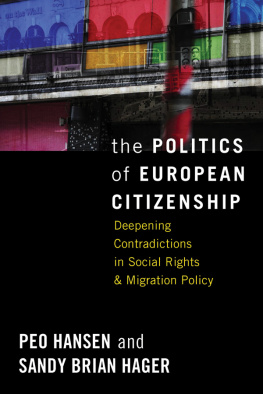

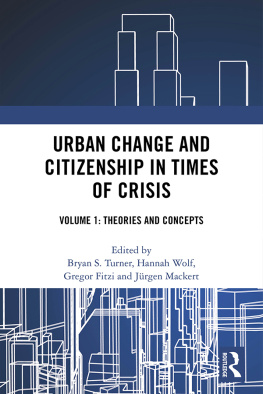
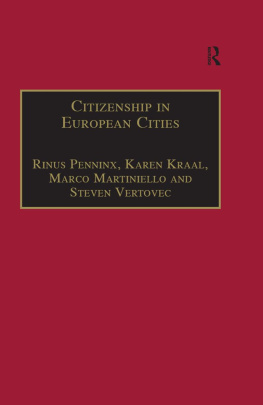
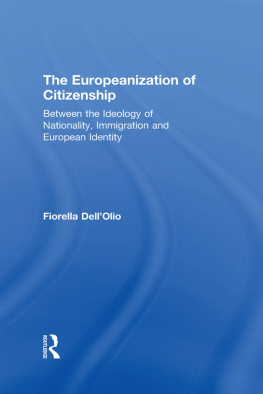
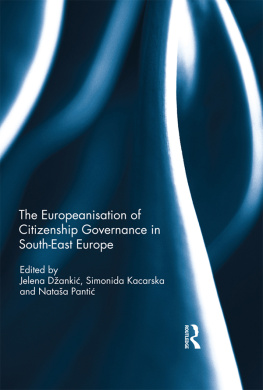
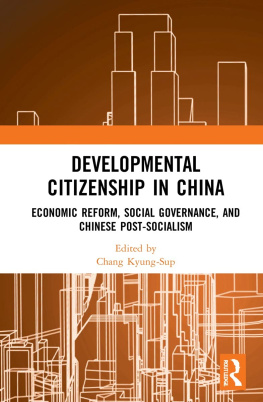
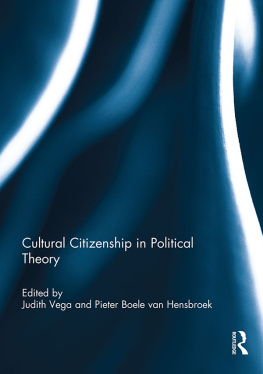
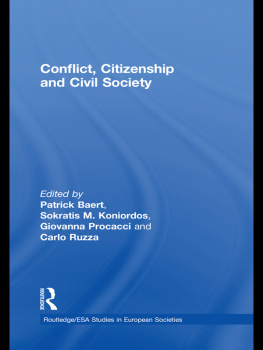
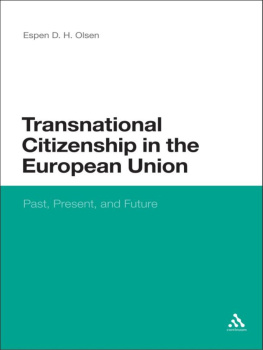
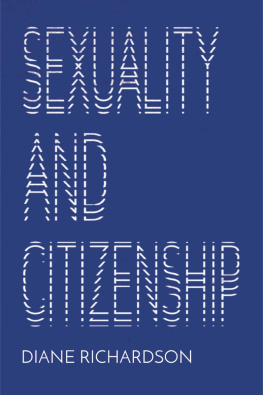


 Contents
Contents Preface
Preface